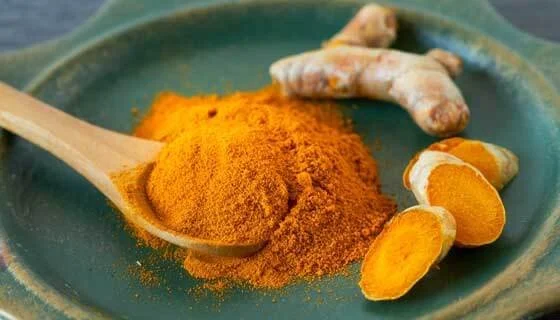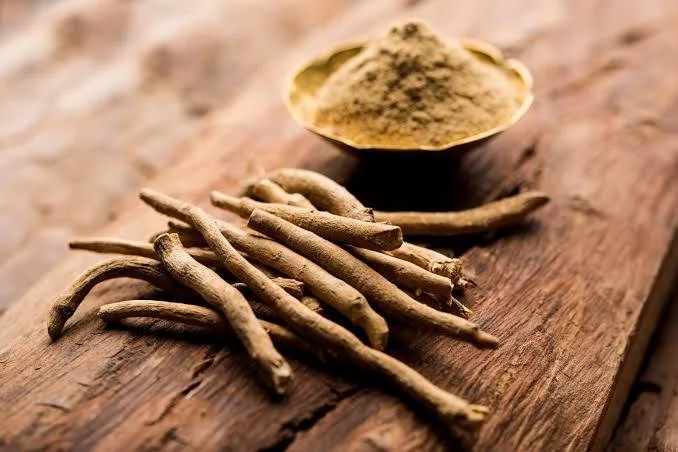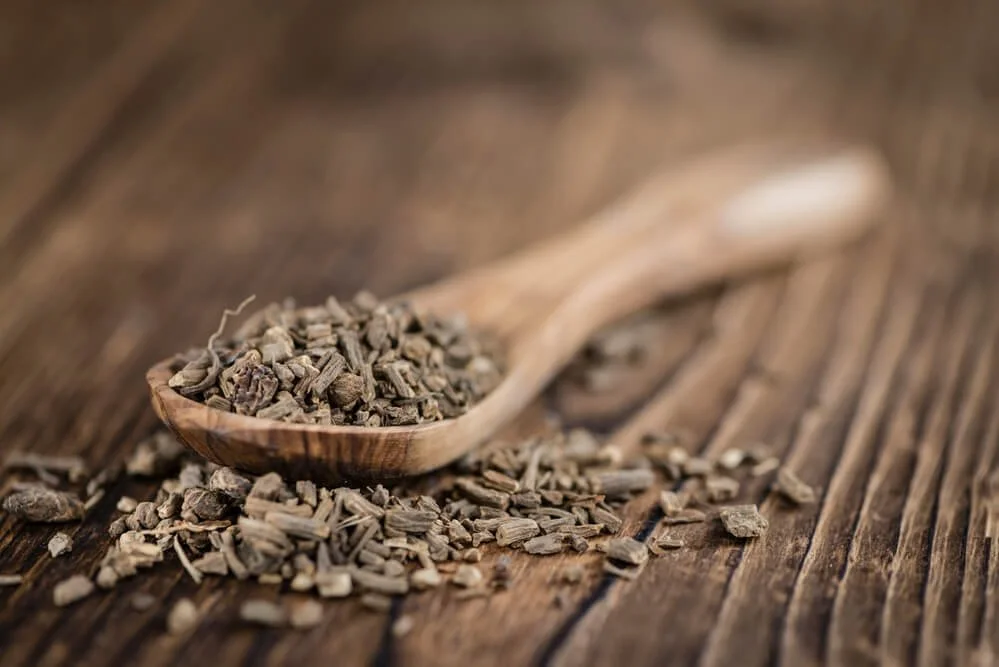Herb Facts
Herb Facts

Thank you for being here! This page is where you can learn more about the herbs we use in each blend. Before you get started, please note that doing your own research is highly recommended. Each person can respond differently to herbs. It is also a good idea to consult with your healthcare provider if you are pregnant, nursing, or taking any medications. Thanks again for being here! I hope this page is helpfu!
Swipe >>
-
![]()
Chamomille
Promotes Sleep and Relaxation: Chamomile is widely recognized for its calming effects, which can help with sleep and relaxation.
Digestive Aid: Chamomile has been traditionally used to relieve digestive issues such as indigestion, nausea, and gas.
Antioxidant Effects: Chamomile is rich in antioxidants such as flavonoids and terpenoids, which help protect cells from damage caused by free radicals.
Menstrual Relief: Chamomile tea is often used to alleviate menstrual pain and discomfort, and can help reduce the severity of menstrual cramps and have a relaxing effect on the muscles .
-
![]()
Peppermint
Digestive Health: Peppermint is well-known for its ability to alleviate digestive issues such as irritable bowel syndrome (IBS), indigestion, and bloating.
Respiratory Relief: Peppermint's menthol component can help clear the respiratory and nasal tract, making it useful for relieving symptoms of colds and congestion.
Antimicrobial Properties: Peppermint has natural antimicrobial properties that make it effective against certain bacteria and fungi.
Mental Clarity and Focus: The aroma of peppermint can enhance cognitive functions such as memory, attention, and alertness. A study published in the International Journal of Neuroscience found that peppermint aroma can improve cognitive performance and mood .
-
![]()
Soursop
Cancer-fighting Properties: Soursop has been studied for its potential anticancer properties. Compounds found in soursop, such as annonaceous acetogenins, have shown promise in inhibiting the growth of cancer cells. A study published in the Journal of Ethnopharmacology highlights its potential in cancer treatment .
Antioxidant Activity: Soursop is rich in antioxidants, which help neutralize harmful free radicals in the body.
Anti-inflammatory Effects: Soursop has anti-inflammatory properties that can help reduce inflammation in the body.
Boosts Immune System: The nutrients and antioxidants in soursop can help strengthen the immune system, improving the body’s ability to fight infections.
Digestive Health: Soursop can aid in digestion and promote gut health. It is traditionally used to treat conditions like constipation and diarrhea.
-
![]()
Raspberry Leaf
Women's Health and Pregnancy Support: Raspberry leaf tea is commonly used to support women's health, particularly during pregnancy. It is believed to strengthen the uterine muscles, which can help facilitate labor and reduce complications. A study published in the Journal of Midwifery & Women's Health found that raspberry leaf can shorten labor duration and reduce the likelihood of interventions during childbirth .
Menstrual Health: Raspberry leaf is often used to alleviate menstrual cramps and regulate menstrual cycles. Research in the Australian Journal of Herbal Medicine indicates that raspberry leaf can help reduce the severity of menstrual pain and manage premenstrual syndrome (PMS) symptoms .
Rich in Nutrients: Raspberry leaf is rich in vitamins and minerals, including vitamins A, C, E, and B, as well as iron, calcium, and potassium.
Antioxidant Properties: Raspberry leaf contains antioxidants that help protect cells from damage caused by free radicals. A study in the Food Chemistry journal highlights the high antioxidant content in raspberry leaves, which can contribute to reducing oxidative stress .
-
![]()
Hibiscus
Blood Pressure Management: Hibiscus tea has been shown to help lower blood pressure in people with hypertension. A study published in the Journal of Nutrition found that consuming hibiscus tea significantly reduced systolic blood pressure in adults with prehypertension and mild hypertension .
Antioxidant Properties: Hibiscus is rich in antioxidants, which help combat oxidative stress and protect cells from damage.
Lowers Cholesterol: Hibiscus may help reduce cholesterol levels, thereby supporting heart health. A study in the Journal of Alternative and Complementary Medicine found that hibiscus extract significantly decreased total cholesterol and LDL cholesterol levels in individuals with diabetes .
Liver Health: Hibiscus has been found to have protective effects on the liver. Research in the Food & Function journal discusses how hibiscus extract can reduce liver damage and improve liver function .
Anti-inflammatory and Antibacterial Properties: Hibiscus possesses anti-inflammatory and antibacterial properties, which can help in reducing inflammation and fighting bacterial infections.
-
![]()
Tumeric
Anti-inflammatory Properties: Curcumin in turmeric has strong anti-inflammatory properties, which can help manage chronic inflammatory conditions such as arthritis.
Antioxidant Effects: Turmeric is a powerful antioxidant that can neutralize free radicals and boost the body’s own antioxidant enzymes.
Improves Brain Function: Curcumin may help boost brain-derived neurotrophic factor (BDNF), a growth hormone that functions in the brain. A study in the Journal of Psychopharmacology found that curcumin can improve mood and cognitive function in older adults .
Lowers Risk of Heart Disease: Turmeric can improve the function of the endothelium, the lining of blood vessels, and reduce inflammation and oxidation, which are key drivers of heart disease. A study in the American Journal of Cardiology found that curcumin supplementation can reduce the risk of heart attacks in post-bypass surgery patients .
Supports Joint Health: The anti-inflammatory properties of turmeric make it beneficial for joint health, particularly for people with osteoarthritis. A review in the Journal of Clinical Interventions in Aging found that curcumin can provide significant pain relief and improve physical function in osteoarthritis patients .
-
![]()
Ashwagandha
Reduces Stress and Anxiety: Ashwagandha is well-known for its ability to reduce stress and anxiety. A study published in the Journal of Clinical Psychiatry found that ashwagandha supplementation significantly reduced anxiety levels in individuals with chronic stress .
Improves Cognitive Function: Ashwagandha may enhance cognitive function, including memory and attention.
Supports Immune Function: Ashwagandha can boost the immune system and improve overall health. Research in the Journal of Ethnopharmacology indicates that ashwagandha enhances immune responses, making the body more resilient to infections .
Regulates Blood Sugar Levels: Ashwagandha may help regulate blood sugar levels, making it beneficial for individuals with diabetes or those at risk. A study published in the Indian Journal of Experimental Biology found that ashwagandha root extract significantly reduced blood glucose levels in diabetic rats .
Anti-inflammatory and Antioxidant Properties: Ashwagandha has anti-inflammatory and antioxidant properties, which can help reduce inflammation and protect cells from damage.
Enhances Sexual Function and Fertility: Ashwagandha has been shown to improve sexual function and fertility in both men and women. A study in the Evidence-Based Complementary and Alternative Medicine journal found that ashwagandha improved sperm quality and fertility in men .
-
![]()
Holy Basil
Reduces Stress and Anxiety: Holy basil is known for its adaptogenic properties, which help the body cope with stress. A study published in the Journal of Clinical Psychiatry found that holy basil significantly reduced stress and anxiety levels in patients .
Anti-inflammatory Properties: Holy basil has anti-inflammatory effects that can help reduce inflammation throughout the body.
Boosts Immune System: Holy basil can enhance immune function and increase resistance to infections.
Improves Respiratory Health: Holy basil is often used to treat respiratory conditions, including asthma and bronchitis.
Antioxidant Properties: Holy basil contains antioxidants that help protect cells from oxidative stress and damage.
-
![]()
Lemon Balm
Reduces Anxiety and Stress: Lemon balm is known for its calming effects and is often used to alleviate anxiety and stress. A study published in the Journal of Clinical Psychopharmacology found that lemon balm extract reduced anxiety and improved mood in individuals experiencing mild to moderate anxiety .
Improves Sleep Quality: Lemon balm can help improve sleep quality and is often used in combination with other herbs for treating insomnia.
Supports Cognitive Function: Lemon balm has been shown to enhance cognitive function, including memory and attention. A study in the Journal of Psychopharmacology found that lemon balm extract improved cognitive performance and reduced mental fatigue .
Antiviral Properties: Lemon balm has antiviral properties that can help combat certain viral infections, such as herpes simplex virus (HSV). A study in Phytomedicine found that lemon balm extract was effective in reducing the symptoms and duration of herpes outbreaks .
Anti-inflammatory Effects: Lemon balm contains compounds with anti-inflammatory properties that can help reduce inflammation in the body.
Antioxidant Properties: Lemon balm is rich in antioxidants that help protect cells from oxidative damage.
-
![]()
Ginger
Reduces Nausea and Vomiting: Ginger is widely known for its ability to alleviate nausea and vomiting, particularly related to pregnancy, chemotherapy, and surgery.
Anti-inflammatory and Pain Relief: Ginger has strong anti-inflammatory properties, making it effective in reducing pain, particularly in conditions like osteoarthritis. A study in Arthritis & Rheumatism found that ginger extract significantly reduced symptoms of osteoarthritis in the knee .
Improves Digestion: Ginger aids digestion and helps alleviate issues such as indigestion and bloating.
Lowers Blood Sugar Levels: Ginger may help regulate blood sugar levels and improve insulin sensitivity. A study in the Journal of Ethnic Foods found that ginger supplementation significantly reduced fasting blood sugar levels in individuals with type 2 diabetes .
Antioxidant Properties: Ginger is rich in antioxidants, which help protect cells from oxidative damage.
Reduces Menstrual Pain: Ginger has been found to be effective in reducing menstrual pain. A study in the Journal of Alternative and Complementary Medicine found that ginger was as effective as ibuprofen in relieving menstrual pain in women .
Supports Cardiovascular Health: Ginger can help improve cardiovascular health by lowering cholesterol levels and reducing blood pressure. A study in the International Journal of Cardiology found that ginger extract significantly reduced cholesterol levels and improved lipid profiles .
-
![]()
Dandelion
Rich in Nutrients: Dandelion is highly nutritious, containing vitamins A, C, K, E, and B-complex, as well as minerals like iron, calcium, magnesium, and potassium.
Supports Liver Health: Dandelion root has been traditionally used to support liver health and improve liver function.
Diuretic Properties: Dandelion acts as a natural diuretic, helping to increase urine production and reduce water retention.
Antioxidant Properties: Dandelion contains various antioxidants, including beta-carotene, that help combat oxidative stress and reduce inflammation.
Aids Digestion: Dandelion can promote healthy digestion and alleviate digestive issues such as constipation and indigestion.
Anti-inflammatory Properties: Dandelion has anti-inflammatory effects that can help reduce inflammation throughout the body.
Supports Skin Health: Dandelion has been used to treat skin conditions such as acne, eczema, and psoriasis due to its anti-inflammatory and antimicrobial properties.
-
![]()
Valerian
Improves Sleep Quality: Valerian is widely known for its ability to improve sleep quality and treat insomnia. A study published in the Journal of Clinical Sleep Medicine found that valerian root extract significantly improved sleep quality in individuals with insomnia .
Reduces Anxiety and Stress: Valerian has been used to reduce anxiety and stress due to its calming effects.
Relieves Menstrual Pain: Valerian can help alleviate menstrual cramps and pain due to its muscle relaxant properties. A study in the Journal of Obstetrics and Gynecology Research found that valerian root extract significantly reduced the severity of dysmenorrhea (painful menstruation) .
Reduces Symptoms of Menopause: Valerian has been found to alleviate symptoms of menopause, such as hot flashes and night sweats. Research in the Journal of Menopausal Medicine suggests that valerian root extract can significantly reduce the frequency and severity of hot flashes in menopausal women .
Muscle Relaxant: Valerian acts as a muscle relaxant and can help reduce muscle spasms and tension.
Antioxidant Properties: Valerian contains antioxidants that help protect cells from oxidative stress and damage.
-
![]()
Passion Flower
Reduces Anxiety: Passion flower is known for its calming effects and is often used to treat anxiety. A study published in the Journal of Clinical Pharmacy and Therapeutics found that passion flower extract was as effective as a prescription medication (oxazepam) in reducing anxiety symptoms in patients with generalized anxiety disorder .
Improves Sleep Quality: Passion flower can help improve sleep quality and treat insomnia.
Alleviates Symptoms of Menopause: Passion flower has been found to relieve symptoms of menopause, such as hot flashes, insomnia, and depression.
Analgesic Properties: Passion flower has analgesic (pain-relieving) properties and can help alleviate various types of pain.
Antioxidant Properties: Passion flower is rich in antioxidants, which help protect cells from oxidative stress and damage.
Anti-inflammatory Effects: Passion flower contains compounds with anti-inflammatory properties that can help reduce inflammation in the body.
-
![]()
Lemongrass
Anticancer Properties: Lemongrass contains compounds that have shown potential anticancer activity. Citral, a major component of lemongrass, has been found to induce apoptosis (programmed cell death) in cancer cells. A study published in the Journal of Agricultural and Food Chemistry demonstrated that citral induced apoptosis in human breast cancer cells through the activation of the mitochondrial pathway .
Antimicrobial Properties: Lemongrass has strong antimicrobial properties that can help fight bacteria and fungi.
Anti-inflammatory Effects: Lemongrass contains compounds with anti-inflammatory properties that can help reduce inflammation in the body.
Antioxidant Properties: Lemongrass is rich in antioxidants, which help protect cells from oxidative stress and damage.
Reduces Anxiety and Promotes Relaxation: Lemongrass has been traditionally used for its calming effects and ability to reduce anxiety.
-
![]()
Green Tea
Rich in Antioxidants: Green tea is rich in polyphenols, particularly catechins, which have strong antioxidant properties. The most notable catechin is epigallocatechin gallate (EGCG). These antioxidants help protect cells from damage caused by free radicals.
Supports Weight Loss: Green tea can aid in weight loss by boosting metabolism and increasing fat burning. Research in the International Journal of Obesity found that green tea extract significantly increased energy expenditure and fat oxidation in humans .
Improves Brain Function: Green tea contains caffeine and the amino acid L-theanine, which can have synergistic effects in improving brain function.
Reduces Risk of Heart Disease: Regular consumption of green tea is associated with a lower risk of cardiovascular diseases. Research in the Journal of the American Heart Association indicates that green tea consumption is linked to reduced blood pressure, improved cholesterol levels, and a lower risk of heart disease and stroke .
May Lower Risk of Cancer: The antioxidants in green tea, particularly EGCG, have been shown to have anti-cancer properties. A review in the Journal of Nutritional Biochemistry suggests that green tea polyphenols can inhibit the growth of cancer cells and reduce the risk of various types of cancer, including breast, prostate, and colorectal cancers .
Improves Dental Health: Green tea has antibacterial properties that can help improve dental health by reducing the growth of harmful bacteria in the mouth. A study published in the Journal of Periodontology found that green tea consumption was associated with improved periodontal health and reduced risk of gum disease .
-
![]()
Nettle
Menstrual Symptom Relief: Nettle can help alleviate symptoms associated with menstruation, such as pain and heavy bleeding. A study in the Journal of Obstetrics and Gynaecology Research found that nettle extract significantly reduced menstrual bleeding in women with heavy menstrual bleeding (menorrhagia) .
Supports Urinary Health: Nettle is used to support urinary health and treat conditions such as benign prostatic hyperplasia (BPH). Research published in the International Journal of Urology suggests that nettle root extract can improve symptoms of BPH and support overall urinary function .
Anti-inflammatory Properties: Nettle has strong anti-inflammatory effects, which can help reduce inflammation in conditions such as arthritis.
Rich in Nutrients: Nettle is highly nutritious, containing vitamins A, C, K, and several B vitamins, as well as minerals like iron, calcium, magnesium, and potassium.
Antioxidant Properties: Nettle contains various antioxidants that help protect cells from oxidative stress and damage.
Blood Sugar Regulation: Nettle may help regulate blood sugar levels and improve insulin sensitivity.
-
![]()
Elderberry
Immune System Support: Elderberry is well-known for its immune-boosting properties. A study published in the Journal of International Medical Research found that elderberry extract can significantly reduce the duration and severity of flu symptoms, suggesting its effectiveness in supporting the immune system .
Antiviral Properties: Elderberry has demonstrated antiviral activity, particularly against influenza viruses.
Anti-inflammatory Effects: Elderberry contains compounds with anti-inflammatory properties that can help reduce inflammation.
Antioxidant Properties: Elderberry is rich in antioxidants, including flavonoids and vitamin C, which help protect cells from oxidative damage.
Supports Heart Health: Elderberry can benefit cardiovascular health by improving blood vessel function and reducing cholesterol levels.
Relieves Sinus Congestion: Elderberry is used to alleviate sinus congestion and related symptoms.
Supports Digestive Health: Elderberry can help support digestive health by promoting gut health and reducing symptoms of gastrointestinal issues.
-
![]()
Rose
Skin Health and Anti-aging: Rose extracts and rose oil are used for their skin health benefits, including anti-aging properties. A study in the Journal of Dermatological Treatment found that rose oil can improve skin hydration, elasticity, and reduce the appearance of wrinkles and fine lines .
Antioxidant Properties: Rose is rich in antioxidants, including vitamin C and flavonoids, which help protect cells from oxidative damage.Anti-inflammatory Effects: Rose has anti-inflammatory properties that can help reduce inflammation and soothe irritated skin.
Mood Enhancement and Stress Relief: Rose essential oil has been shown to have mood-enhancing and stress-relieving effects.
Supports Digestive Health: Rose petals and rose tea are traditionally used to support digestive health and alleviate gastrointestinal issues. .
Antimicrobial and Antiviral Properties: Rose extracts have antimicrobial and antiviral properties that can help fight infections. Wound Healing: Rose extracts are used to promote wound healing and treat minor cuts and abrasions.
-
![]()
Mullein
Respiratory Health: Mullein is commonly used to support respiratory health and treat conditions such as coughs, bronchitis, and asthma. A study published in the Journal of Ethnopharmacology found that mullein leaf extract has expectorant properties that can help clear mucus from the respiratory tract and alleviate symptoms of coughs and colds .
Anti-inflammatory Properties: Mullein has anti-inflammatory effects that can help reduce inflammation in the body.
Antimicrobial Activity: Mullein has antimicrobial properties that can help fight infections.
Supports Ear Health: Mullein is used in traditional medicine to treat ear infections and support ear health.
Antioxidant Properties: Mullein contains antioxidants that help protect cells from oxidative damage.
Supports Urinary Health: Mullein is also used to support urinary health and treat urinary tract infections (UTIs).
-
![]()
Licorice
Hormonal Balance: Licorice can help balance hormones, particularly in women with conditions such as polycystic ovary syndrome (PCOS). Research in the Journal of Endocrinological Investigation indicates that licorice can influence estrogen and testosterone levels, providing a natural option for hormonal regulation .
Anti-inflammatory Properties: Licorice has potent anti-inflammatory effects that can help reduce inflammation in the body.
Supports Digestive Health: Licorice is beneficial for digestive health, particularly for conditions like gastritis and stomach ulcers.
Antiviral Properties: Licorice has demonstrated antiviral activity against various viruses, including hepatitis C and herpes simplex virus.
Supports Respiratory Health: Licorice is used to support respiratory health and treat conditions such as coughs, asthma, and bronchitis.
Antioxidant Properties: Licorice contains antioxidants that help protect cells from oxidative damage.
Anti-ulcer Effects: Licorice has been shown to have anti-ulcer effects, protecting the stomach lining and promoting healing of ulcers. A study in the Journal of Pharmacy and Pharmacology found that licorice extract can significantly reduce the formation and severity of stomach ulcers .
Immune System Support: Licorice supports the immune system by enhancing the body's natural defense mechanisms.





















